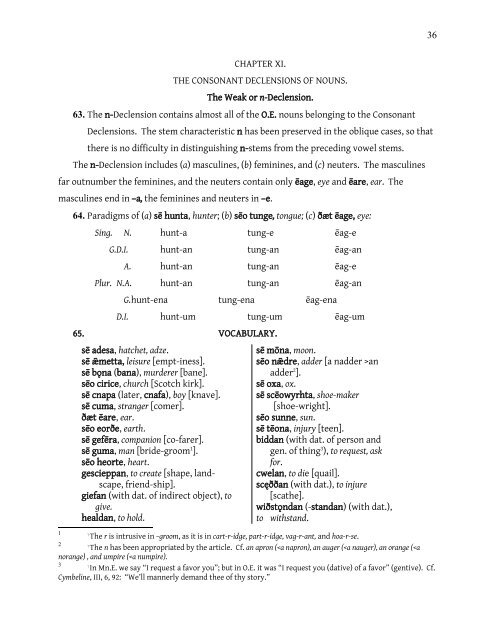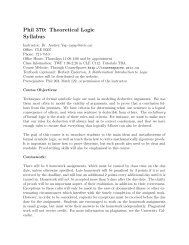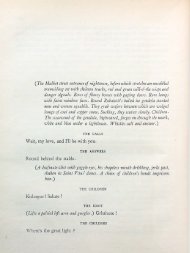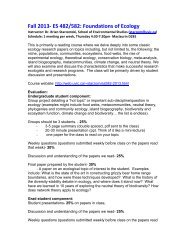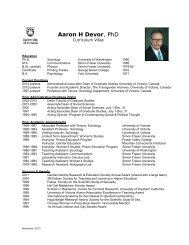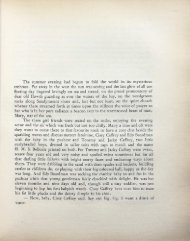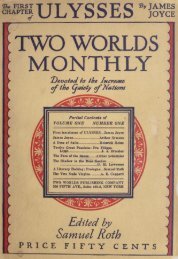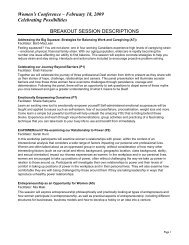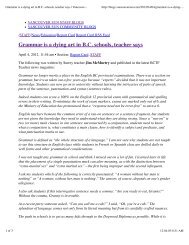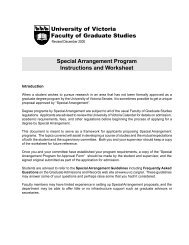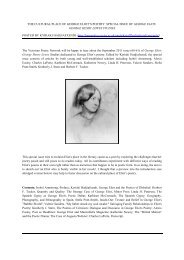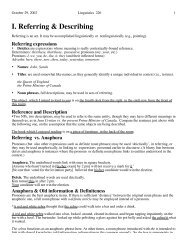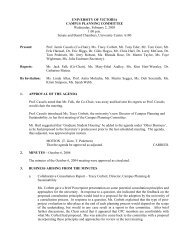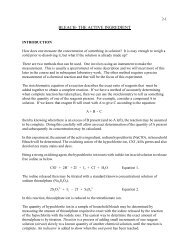OLD ENGLISH GRAMMAR AND EXERCISE BOOK
OLD ENGLISH GRAMMAR AND EXERCISE BOOK
OLD ENGLISH GRAMMAR AND EXERCISE BOOK
Create successful ePaper yourself
Turn your PDF publications into a flip-book with our unique Google optimized e-Paper software.
CHAPTER XI.<br />
THE CONSONANT DECLENSIONS OF NOUNS.<br />
The Weak or n-Declension.<br />
63. The n-Declension contains almost all of the O.E. nouns belonging to the Consonant<br />
Declensions. The stem characteristic n has been preserved in the oblique cases, so that<br />
there is no difficulty in distinguishing n-stems from the preceding vowel stems.<br />
The n-Declension includes (a) masculines, (b) feminines, and (c) neuters. The masculines<br />
far outnumber the feminines, and the neuters contain only ēage, eye and ēare, ear. The<br />
masculines end in –a, the feminines and neuters in –e.<br />
1<br />
64. Paradigms of (a) sē hunta, hunter; (b) sēo tunge, tongue; (c) ðæt ēage, eye:<br />
Sing. N. hunt-a tung-e ēag-e<br />
G.D.I. hunt-an tung-an ēag-an<br />
A. hunt-an tung-an ēag-e<br />
Plur. N.A. hunt-an tung-an ēag-an<br />
G.hunt-ena tung-ena ēag-ena<br />
D.I. hunt-um tung-um ēag-um<br />
65. VOCABULARY.<br />
sē adesa, hatchet, adze.<br />
sē ǣmetta, leisure [empt-iness].<br />
sē bǫna (bana), murderer [bane].<br />
sēo cirice, church [Scotch kirk].<br />
sē cnapa (later, cnafa), boy [knave].<br />
sē cuma, stranger [comer].<br />
ðæt ēare, ear.<br />
sēo eorðe, earth.<br />
sē gefēra, companion [co-farer].<br />
sē guma, man [bride-groom 1 ].<br />
sēo heorte, heart.<br />
gescieppan, to create [shape, landscape,<br />
friend-ship].<br />
giefan (with dat. of indirect object), to<br />
give.<br />
healdan, to hold.<br />
sē mōna, moon.<br />
sēo nǣdre, adder [a nadder >an<br />
adder 2 ].<br />
sē oxa, ox.<br />
sē scēowyrhta, shoe-maker<br />
[shoe-wright].<br />
sēo sunne, sun.<br />
sē tēona, injury [teen].<br />
biddan (with dat. of person and<br />
gen. of thing 3 ), to request, ask<br />
for.<br />
cwelan, to die [quail].<br />
scęððan (with dat.), to injure<br />
[scathe].<br />
wiðstǫndan (-standan) (with dat.),<br />
to withstand.<br />
The r is intrusive in –groom, as it is in cart-r-idge, part-r-idge, vag-r-ant, and hoa-r-se.<br />
2<br />
The n has been appropriated by the article. Cf. an apron (


